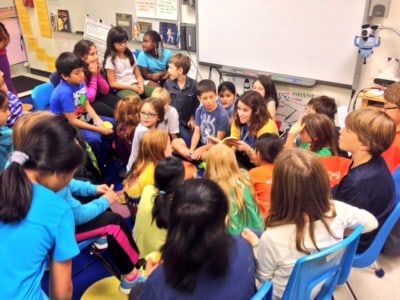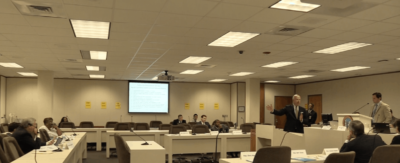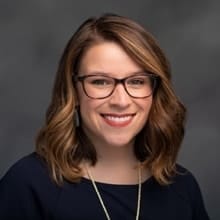
This is the seventh and final piece in a series on competency-based education. Read the rest of the series here.
With October coming to a close, REL Southeast and NC Department of Public Instruction (DPI) staff have concluded their statewide regional workshops on personalized learning. The fall tour started in Lincolnton and ended in Asheville, spanning the course of two months. Workshops had participants:
- take students’ perspectives as they enter personalized learning environments;
- delve into NC DPI’s four pillars of personalized learning;
- reflect on their own thoughts and feelings around personalization;
- plan for personalized learning in their respective schools and/or districts; and
- consider their needs moving forward with personalization.
REGIONAL WORKSHOPS: 8
TOTAL PARTICIPANTS: 262
MILES TRAVELED: 1783.5
BOXES OF COFFEE: 15
REL Southeast and NC DPI learned a great deal traveling the state hearing from educators, especially pertaining to what educators need to take their next steps with personalized learning. Many workshop participants initially listed time and money as their primary needs, but REL Southeast staff challenged participants to think more deeply about what they really needed to move forward — what, specifically, they would use extra time to do or money to fund. Four common themes emerged across regions.
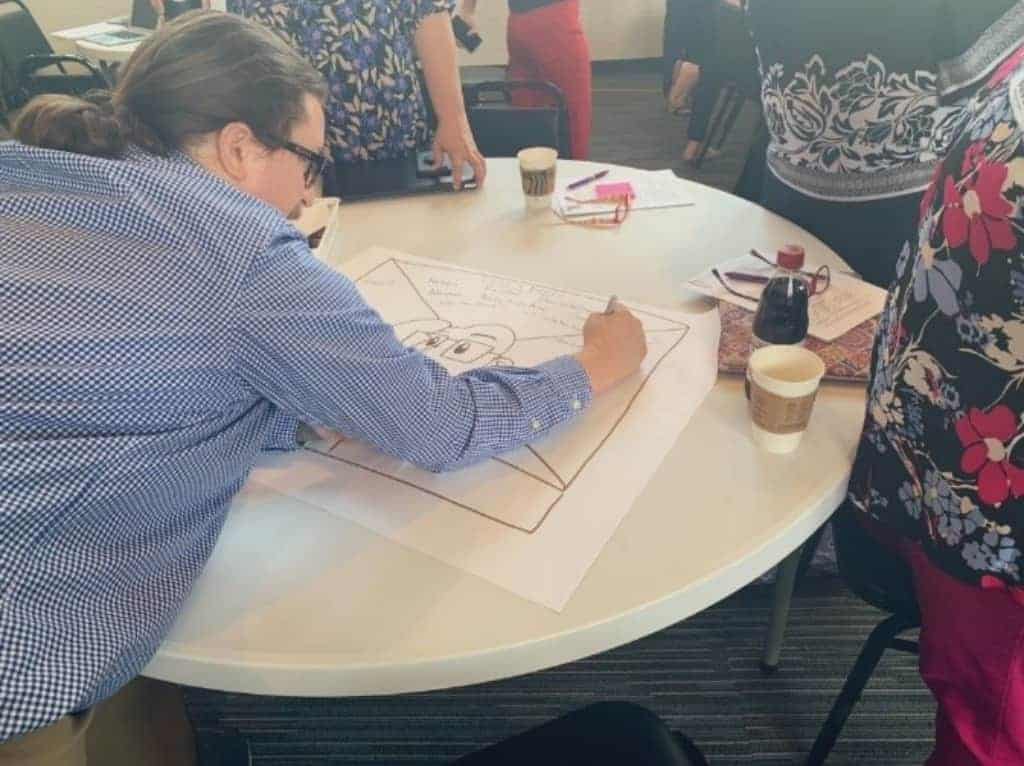
1. Networks of support
Educators stated numerous times that they needed support from their administrative teams or their district staff, but they also shared the importance of support from peers. Networking with other schools or districts in their own personalization processes allows for educators to learn from one another. This idea of networks pairs well with NC DPI’s Statewide System of Support (SSOS) model, which could continue to facilitate regional workshops to further educators’ learning and relationship building within their respective regions.
2. Common understanding of personalized learning
A common understanding of what personalization means is key to moving personalized learning forward. NC DPI has started this process by including their four pillars of personalized learning in the state’s ESSA Plan. REL Southeast’s Competency-Based Education (CBE) Alliance continues to work across K-12 and postsecondary sectors to discuss the meaning of CBE.
Shifting the mindsets of various stakeholders can make garnering buy-in for personalized learning a challenge. Not only do district and school staff need to embrace the idea of personalization, but so do students and their families. When a common understanding is established, all stakeholders can be on the same page with what personalized learning means for a given school or district.
3. Sample implementation timeline
Personalized learning is a journey that looks different for every student, and that sentiment extends to the journey for a school or district as they begin implementing personalization practices. Several participants wanted to see an implementation timeline or some kind of personalized learning self-assessment to gauge where they are in the process of making changes in their school or district. The REL Southeast CBE Alliance developed the CBE Mastery Framework with the help of North Carolina educators to assist schools and districts wanting to shift to CBE.
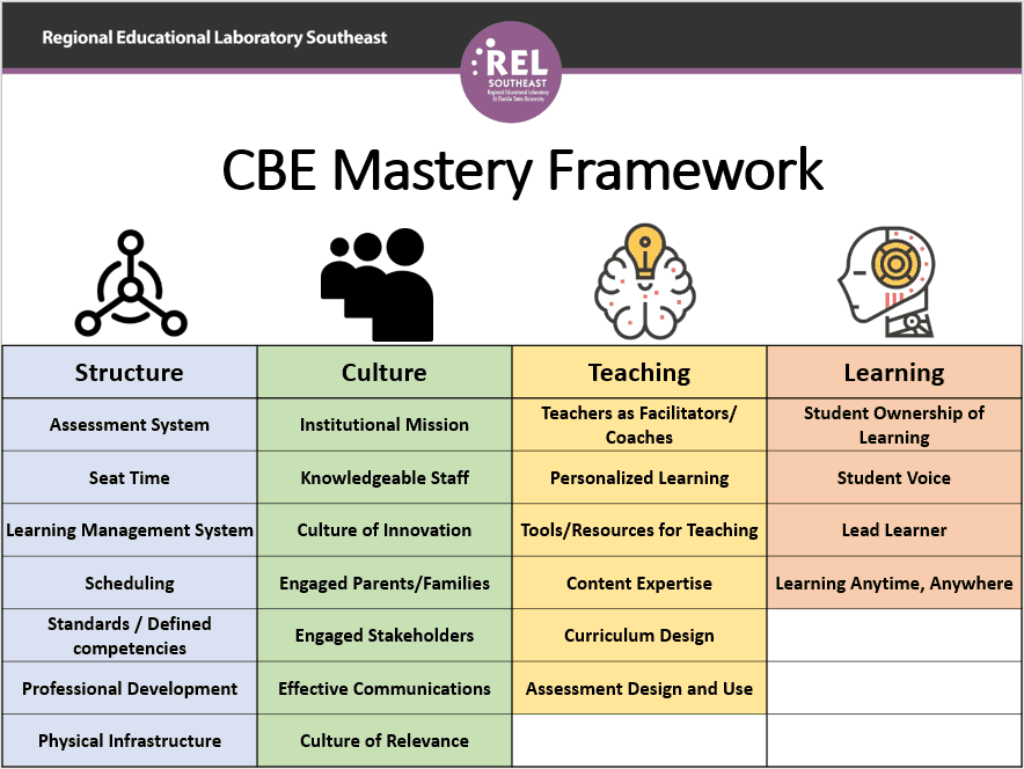
Though the CBE Mastery Framework is not a timeline, educators can use the framework to help them assess if they are making intentional changes to their structure, culture, teaching, and learning within their respective contexts.
4. Time for teachers
Drilling down into the need of “time” led us to several specific needs. The first is time for collaboration between teachers. Educators highlighted the importance of collaborating across grade levels to pursue vertical alignment, across content areas to develop strong project-based learning units, and across districts to gather ideas and share hardships.
The second need that revolved around time is professional development that matches teachers’ needs. It almost felt ironic hearing the desire for personalized learning for teachers at a personalized learning for students workshop, but the importance of meeting teachers where they are in their own pedagogy was a significant request.
Lastly, participants said they needed time to visit classrooms to observe personalized learning in action. These classroom visits would not be limited to their own schools or districts, but more expansive to see where personalization is being done well in North Carolina.
REL Southeast and NC DPI are so grateful to all the educators who attended the personalized learning regional workshops. We are continuing to analyze data from our workshop evaluations so we can better serve schools and districts across the state. If you are engaging in personalized learning in your classroom, school, or district, take a photo and share your work on social media using the #PLinNC hashtag.
To inquire about REL Southeast services and support, please contact Allison Redden (aredden@rti.org) or Laura Knapp (lgknapp@rti.org).
Recommended reading

